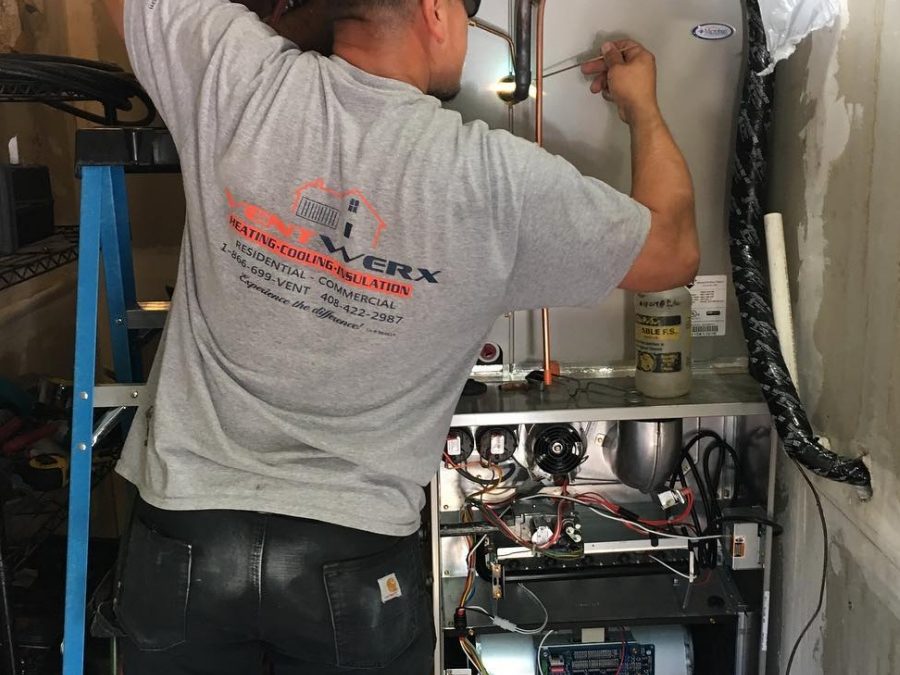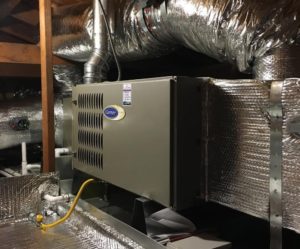If you are shopping for a new furnace for your home, there are crucial things that you need to do before looking at the best furnace and air conditioner brands: know and understand the different types of furnaces.
Types of Furnaces
Furnaces are broadly classified according to the type of fuel that they use in order to generate heat.
Gas Furnace
Gas furnaces use natural gas (methane), liquefied petroleum gas (LPG), propane, butane, or a mixture of butane and propane as fuel. In many areas around the country, gas furnaces are commonly used with natural gas and propane. Which gas is used to fuel the furnace is often determined by availability.
In a gas furnace, heat output and the temperature in the furnace is the same. This means that efficiency and operating characteristics of the furnace also remain the same.
Fuel Oil Furnace
The popularity of fuel oil furnace has dwindled over the past years, reflecting the steady increase of oil.
These furnaces utilize a specialized burner which converts oil into mist. Thus, these require the use of thicker and heavier steel and are fabricated differently. In turn, these differences make these furnaces more expensive.
In general, these furnaces have an efficiency rating of 80 percent which can be improved to 90 percent using a specialized heat exchanger.
Electric Furnace
In terms of efficiency, electric furnaces rank as the best. This is due to the fact that no heat is lost in the chimney or vent.
These furnaces use wire coils to heat the air, just like what you would see in a toaster.
If there is one major drawback to these furnaces, that would be high energy bills. Although there is no heat lost or wasted, the resulting cost of consumed electricity is considerably higher than that of other fuel sources.
Which one should i buy?
They all have their pros and cons.
Gas and electric furnaces are known for their quiet operation and efficiency. Gas furnaces work well with existing heating systems. Electric furnaces, on the other hand, can also be used to cool a home during the summer.
However, both furnaces also have a few disadvantages. Gas furnaces, for example, need to work harder to heat up larger homes. Electric furnaces, on the other hand, consume a high volume of electricity, especially when used in areas with a cool climate.
Forced air furnaces work best for smaller spaces. Ideally, these should only be used for short durations of time to cool small spaces.
Things You Need to do Before Buying a Furnace
Apart from understanding the pros and cons of the different furnace types, there are a few other important tasks that you will need to do.
First, you have to make sure that your home is already energy efficient to boost the furnace’s efficiency. In some cases, that will mean adding insulation or sealing air leaks.
Next, you have to prepare yourself for the tasks required for maintaining your new furnace.
Furnaces need to be regularly and properly maintained in order to ensure their optimal performance. These tasks include cleaning or replacing air filters and cleaning the baseboards and radiators.
Finally, you have to make sure that you choose the right size for the furnace.
Choosing the Right Furnace Size
“When it comes to furnace size, bigger is not necessarily better.”
If a furnace is too large for a home, it can lead to short cycling which causes inefficiency.
Short cycling simply means that the furnace turns on and off more than what is necessary. This can lead to problems inside your home including uneven temperature, inefficient use of fuel, and high humidity.
And speaking of humidity, when it is too high, it can lead to respiratory problems and discomfort, as well as facilitate the growth of molds.
Furnaces that are too large are noisier and cause temperature swings. Finally, a large furnace operates less efficiently, leading to higher fuel costs.
The task of finding the right size furnace should be left to professionals who will need to evaluate your home first.
HVAC professionals use the Manual J Load Calculation to perform this important task. The load calculation will take into account different factors in your home including its area, the insulation in different areas, type of insulation used, number of storm windows, and the degree of sheltering in a home’s exterior.
Broadly speaking, the best furnace to purchase is the smallest and most efficient one suitable for your home.
Apart from determining the right size for your furnace, HVAC professionals can also give you guidance when choosing furnaces with high efficiency ratings.
Once a suitable furnace has been found, it is essential that it is installed properly by qualified professionals.
With so many types of furnaces out there it’s hard to know what will work best for your home. Get trusted professional help to install the best furnace system for your home, click here for a free estimate!




